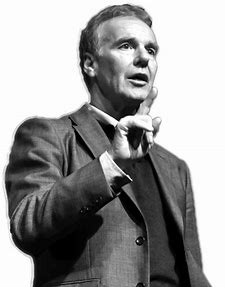Jay Forrester

The primary advantage of computer models over mental models lies in the way a computer model can reliably determine the future dynamic consequences of how the assumptions within the model interact with one another. A secondary advantage of computer models over mental models is that interrelated assumptions are made explicit. Unclear and hidden assumptions are exposed by the mathematically programs and thus causes hidden assumptions to be debated and examined.
"Because all models are wrong, we reject the notion that models can be validated in the dictionary definition sense of 'establishing truthfulness', instead focusing on creating models that are useful... we argue that focussing on the process of modelling rather than on the results of any particular model speeds learning and leads to better models, better policies, and a greater chance of implementation and system improvement."
Enter any troubled company and speak with its employees and one will generally find people perceive reasonably correctly their immediate environments. They can tell you what problems they face, and can produce rational solutions to their problems. Usually the problems are blamed on outside forces, but a dynamic analysis often shows how the internal policies are causing the troubles. In fact a downward spiral can develop in which the presumed solutions make the difficulties even worse.
Donella Meadows

- Get The Beat. Before you disturb the system in any way, watch how it behaves. Ask people who have been around the system a long time. If possible graph actual data from the system.
- Listen to The Wisdom of The System. Aid and encourage the forces and structures that help the system run itself. Remember the current system has often evolved naturally, so seek the value in the current system and re-enforce it's most successful practices.
- Expose Your Mental Models to The Open Air. Everything you know, hypothesis or assume can explain is nothing more than a mental model. Get your model out there and invite others to shoot it down. Consider all other models plausible until you find evidence to prove the contrary.
- Stay Humble. Stay a Learner. It is just as important to trust your intuition as it is to trust your rationality. Lean on both approaches equally.
- Locate Responsibility in The System. Look for ways where the system creates its own behaviours. Sometimes outside events can be controlled, but sometimes they can't. Sometimes blames or trying to control outside influences only blinds one to the easier task of increasing responsibility within the system.
- Make Feedback Policies for Feedback Systems. A dynamic self-adjusting system cannot be governed by a static, unbending policy. Design policies that change depending on the state of the system.
- Honour and Protect Information. A decision-maker can't respond to information he or she doesn't have, or react correctly to inaccurate information.
- Pay Attention to What is Important, Not Just What is Quantifiable. Our culture is often obsessed with numbers, and consequently what gets measured becomes more important than what we can't measure. Decide what is more important quantity or quality and ensure the most important is discussed and spoken about.
- Go for The Good of The Whole. Don't maximise parts of the systems while ignoring the whole. Aim to enhance the entire system.
- Expand Time Horizons. The official time horizon extends beyond the payback period of the current investment, or the next election, or even the next generation. When you walk you must pay attention to obstacles at your feet, just as much as you pay attention to the obstacles in the distance.
- Expand The Boundary of Caring. No systems is separated from the world itself. Real systems are interconnected and so caring beyond the immediate boundaries are necessary.
- Expand Thought Horizons. Seeing systems as a whole requires perspectives from many different disciplines. All involved must be in learning model to solve the problem together.
Peter Senge

A learning organisation is one where "people continually expand their capacity to create the results they truly desire." The five disciplines of a learning organisation are Systems Thinking, Personal Mastery, Mental Models, Shared Vision and Team Learning.
- Today's problems come from yesterday's 'solutions'
- The harder you push, the harder the system pushes back
- Behaviour grows better before it grows worse
- The easy way out usually leads back in Temptation for individuals to adopt the easiest solution, tend to creep back.
- The cure can be worse than the disease Passing the burden onto the inventor to fix, when ultimately the underlining problem remains unfixed.
- Faster is slower Virtually all systems are have intrinsically optimal rates of growth, which are far less than the fastest growth possible. Excessive growth can result in the wide system seeking to compensate by slowing it down.
- Cause and effect are not closely related in time and space
- Small changes can produce big results - but the areas of highest leverage - are often the least obvious
- You can have your cake and eat it too - but not at once Many current dilemmas are by-products of static thinking. They only exist in the current situation. Often both goals can be achieved if you are willing to wait for one while focused on the other.
- Dividing an elephant in half does not produce two small elephants A system boundary must include the most important issues at hand.
- There is no blame We tend to blame others 'someone else'. The cure lies in your relationship with your 'enemy'.